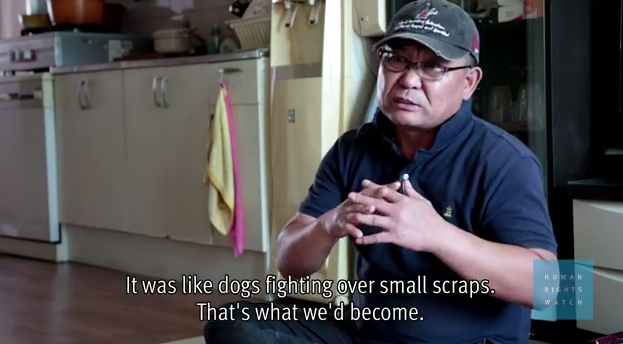International advocacy group, Human Rights Watch, released a video, "North Korea: Tales of Camp Survivors," featuring rare first-person accounts of survivors and former guards in the regime's notorious political prison camps.
View this video on YouTube
The video released on Monday, Feb. 17, coincides with the release of a new United Nations report which found that North Korea is responsible for crimes against humanity and called for an international tribunal to investigate and hold perpetrators accountable for the atrocities committed within the regime's prison camps.
The Kwan-li-so is North Korea's prison system which holds political prisoners in remote areas of the country.
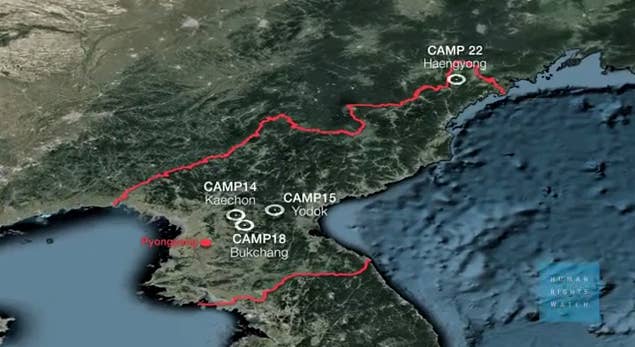
The UN commission found: “The unspeakable atrocities that are being committed against inmates of the kwanliso political prison camps resemble the horrors of camps that totalitarian states established during the 20th century.”
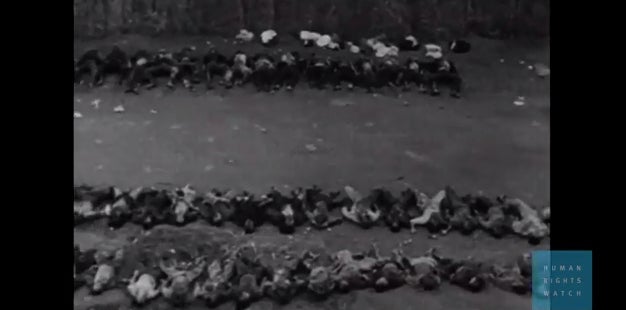
There are an estimated 150,000 to 200,000 political prisoners being held in the camps right now, Joanne Hosaniak, the Deputy Director General Citizens Alliance for North Korea Human Rights, said in the HRW video.
The commission's 400-page set of reports and documents, detailed "unspeakable atrocities" committed in the country, "the gravity, scale and nature" of which "does not have any parallel in the contemporary world."
"These crimes against humanity entail extermination, murder, enslavement, torture, imprisonment, rape, forced abortions and other sexual violence, persecution on political, religious, racial and gender grounds, the forcible transfer of populations, the enforced disappearance of persons and the inhumane act of knowingly causing prolonged starvation."
Another section of the report based on first-hand testimonies of victims and witnesses described how political prisoners were forced to catch snakes and mice to feed malnourished babies. Other prisoners spoke of defenseless inmates being used for martial acts practices.
The UN report also included a letter to Kim Jong-un which said he may be personally held liable in the International Criminal Court for "crimes against humanity" referred to in the report.
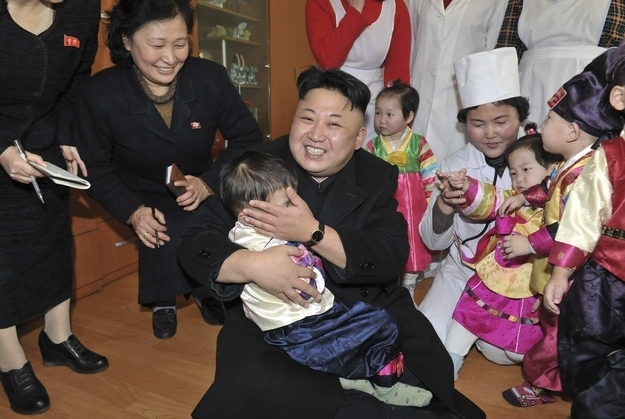
Kang Cheol-Hwan was 10 years old when he was sent to a prisoner camp along with his family after his grandfather was accused of treason against the government. He spent 10 years of his life in Camp 15.
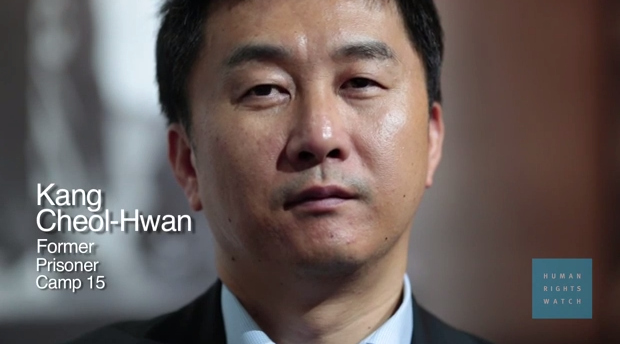
He said many prisoners who had no energy to find food in the camps, "lost their mind."
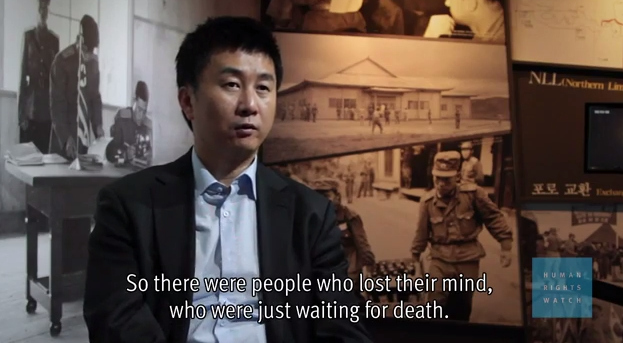
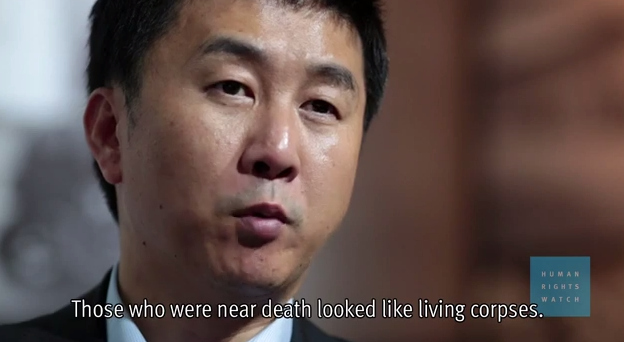
At the age of 13, Kim Hye-Sook was sent to a prisoner camp after her grandfather allegedly escaped to South Korea. She spent 28 years in Camp 18.
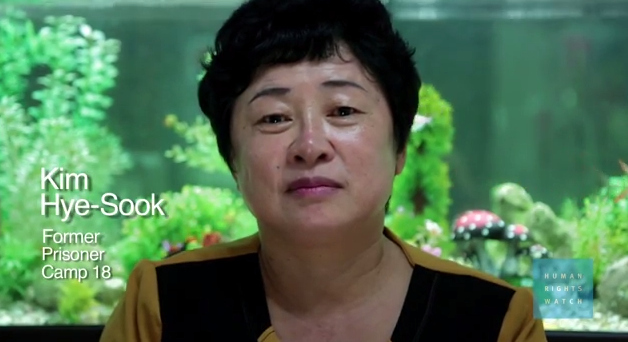
Hye-Sook drew pictures of the atrocities she witnessed in the camp during the 28 years of her imprisonment.
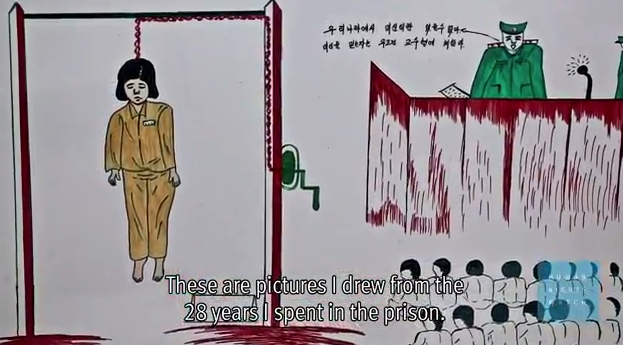
She described how the guards were taught to treat the prisoners cruelly.
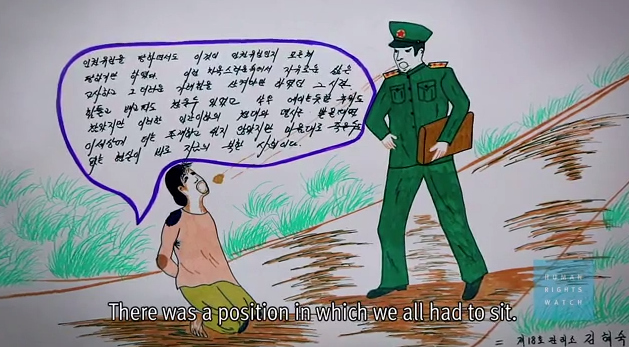
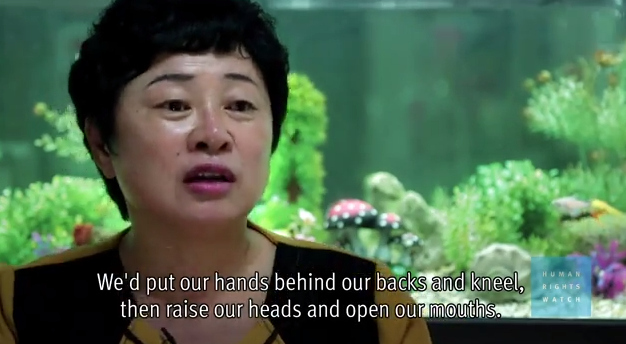
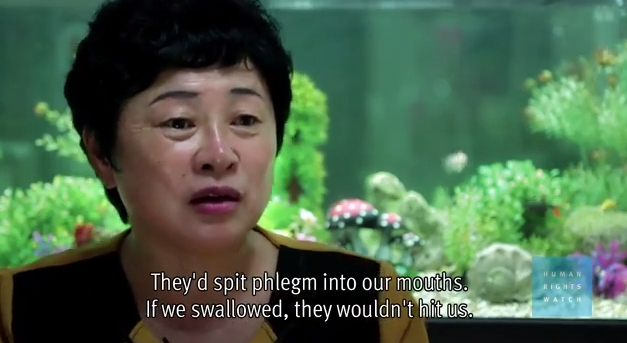
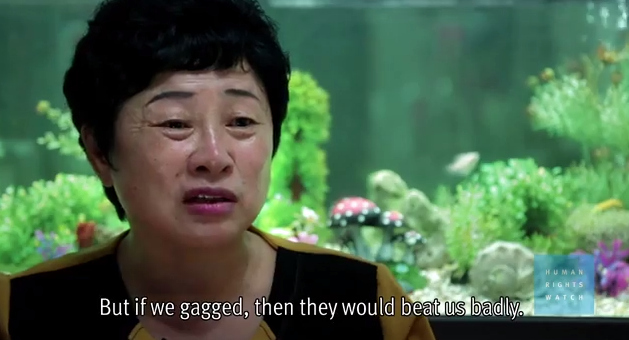
Hye-Sook also described the devastating effects of hunger on the children in the camps.
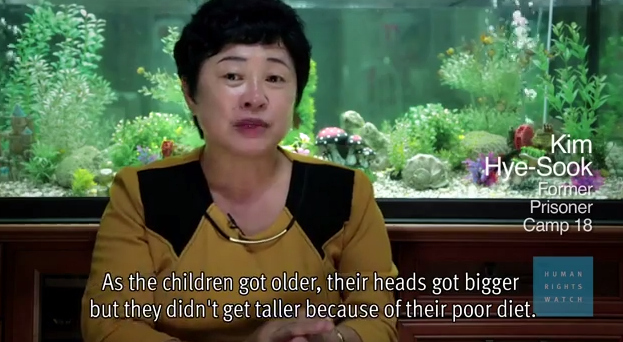
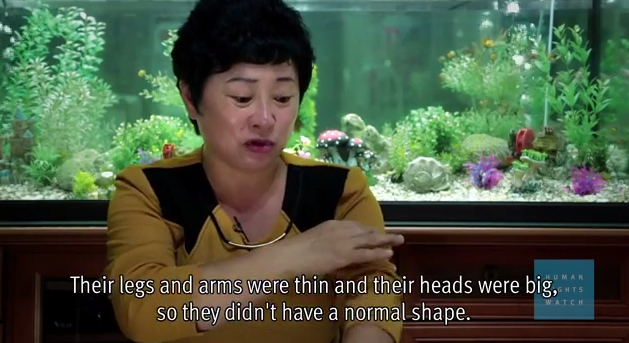
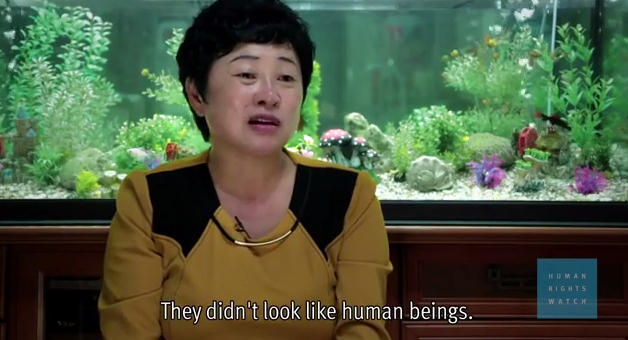
Ahn Myung-chul, who came from a privileged family, served as a security guard in three prison camps.
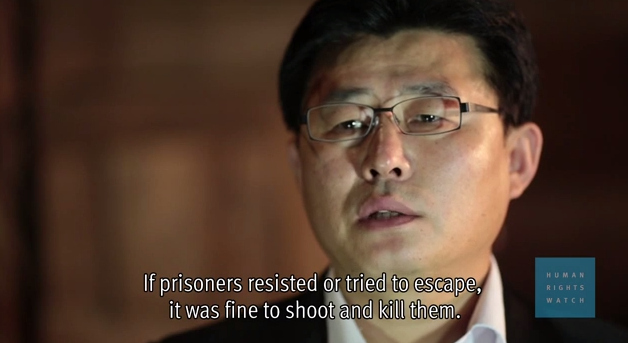
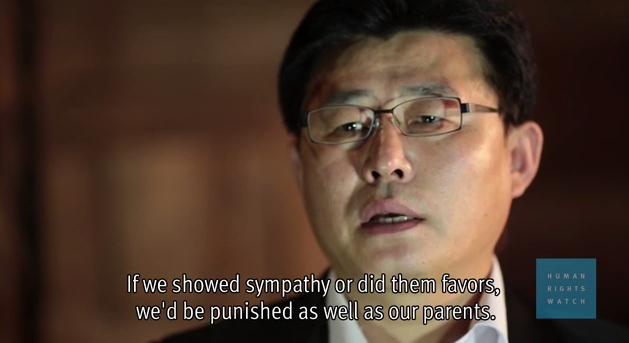
"Every North Korean has seen public executions," said Myung-chul, who described in detail how the executions took place.
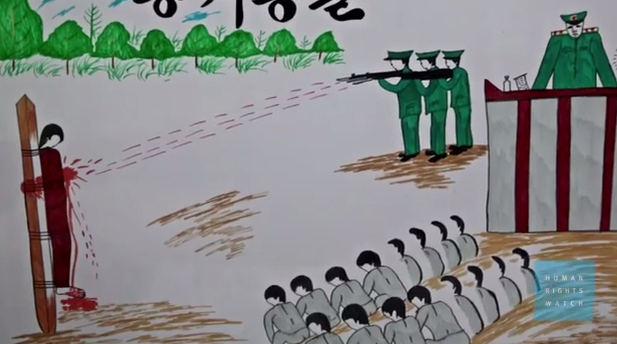
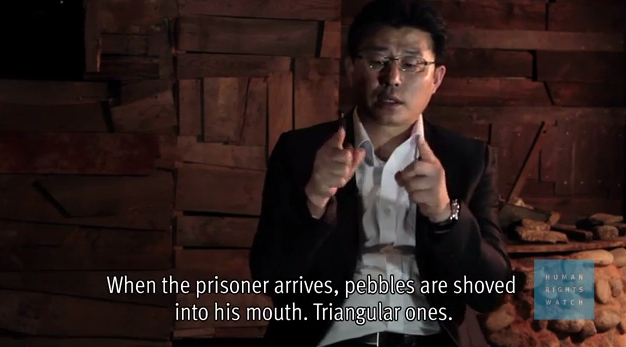
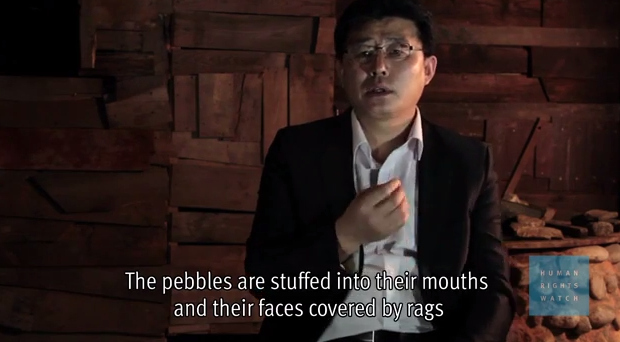
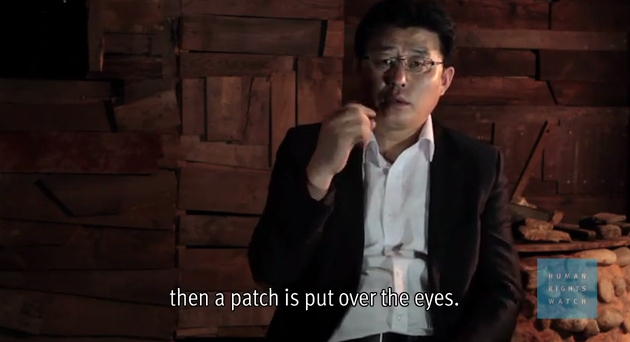
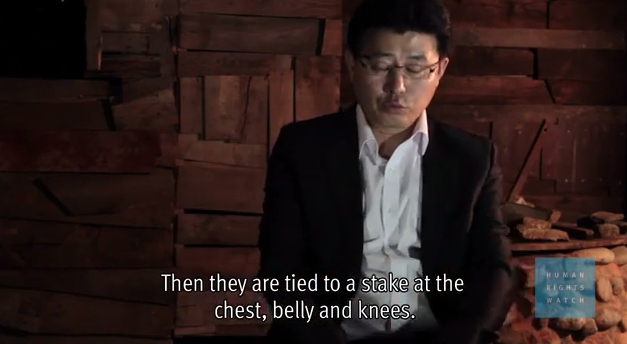
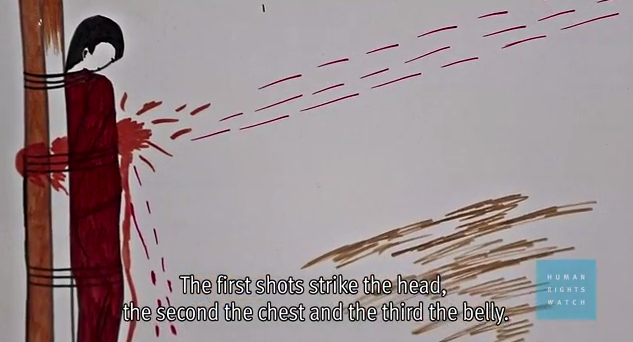
He said that if family members or friends of the condemned cried at the executions, they were arrested on the spot and sent to the detention center to be executed.
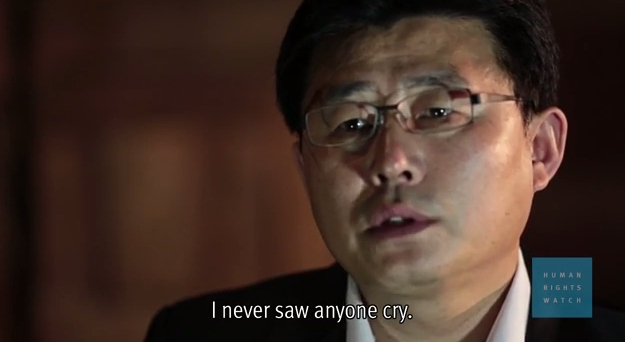
Another former police official said "death just wasn't important" in the camps where people died every day.
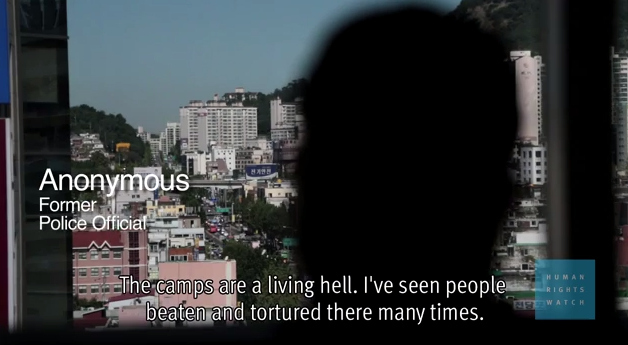
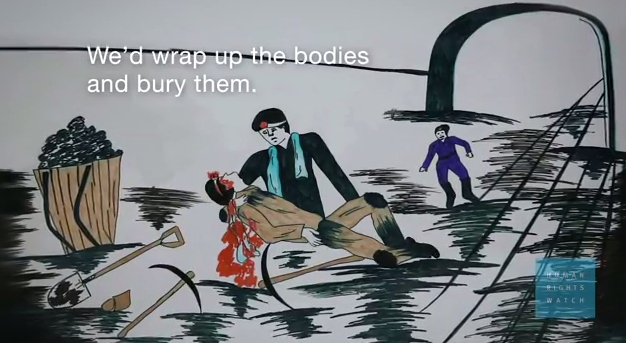
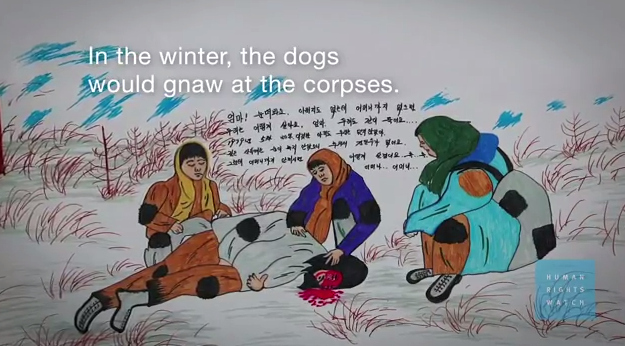
The official said that many people reluctantly went along with the regime because of the fear that their resistance would endanger not just themselves, but three generations of their family.
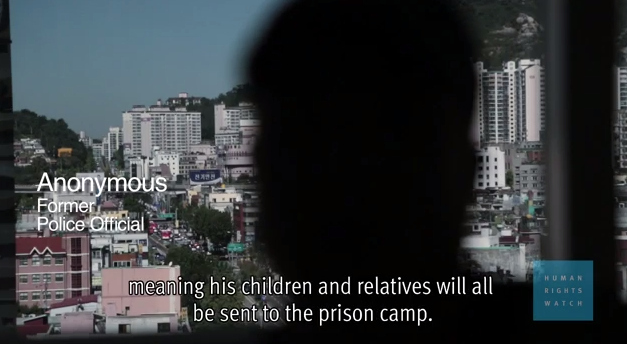
Lee Younk-Kuk, who was Kim Jong-Il's personal bodyguard for 10 years, was held and tortured in a prisoner camp for criticizing the regime.
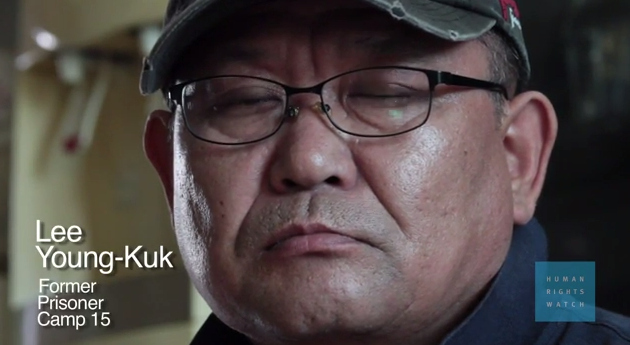
He said that cows ate most of the meager corn that prisoners were offered as food.
"Kim Jong-il turned people into complete beasts," he said.
